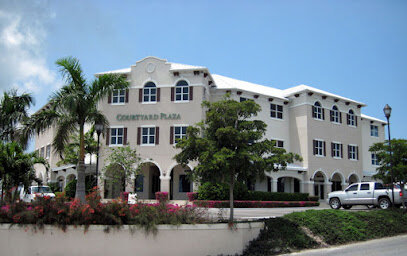Best Elder Law Lawyers in Turks and Caicos Islands
Share your needs with us, get contacted by law firms.
Free. Takes 2 min.
Or refine your search by selecting a city:
List of the best lawyers in Turks and Caicos Islands
About Elder Law in Turks and Caicos Islands
Elder Law in Turks and Caicos Islands refers to the area of law that focuses on issues that affect the aging population. This may include matters related to estate planning, guardianship, long-term care, elder abuse, and more.
Why You May Need a Lawyer
You may need a lawyer specializing in Elder Law in Turks and Caicos Islands if you are facing issues such as drafting a will, setting up a trust, applying for government benefits, navigating long-term care options, or dealing with elder abuse or exploitation.
Local Laws Overview
In Turks and Caicos Islands, the legal framework surrounding Elder Law is governed by various legislation such as the Mental Health Ordinance, the Mental Capacity Ordinance, and the Elderly Persons Care and Protection Ordinance. These laws provide guidelines and protections for the elderly population in areas such as healthcare decisions, guardianship, and financial management.
Frequently Asked Questions
Q: What is the role of a guardian in Elder Law?
A: A guardian is appointed by the court to make decisions on behalf of an incapacitated elderly person who is unable to make decisions for themselves.
Q: How can I protect my assets in old age?
A: You can protect your assets through estate planning tools such as wills, trusts, and powers of attorney.
Q: What are the signs of elder abuse?
A: Elder abuse can take many forms including physical abuse, financial exploitation, neglect, and emotional abuse. Signs may include unexplained injuries, sudden changes in finances, and withdrawal from social activities.
Q: Can I challenge a will in Turks and Caicos Islands?
A: Yes, if you believe a will is invalid or has been drafted under duress, you may challenge it in court.
Q: How do I apply for government benefits for the elderly?
A: You can apply for government benefits such as social security or healthcare assistance through the relevant government agencies in Turks and Caicos Islands.
Q: What is a living will?
A: A living will is a legal document that outlines your wishes regarding medical treatment in the event you are unable to communicate your preferences.
Q: How can I plan for long-term care in old age?
A: You can plan for long-term care by exploring options such as long-term care insurance, setting up a trust, or researching local care facilities.
Q: What is the difference between a will and a trust?
A: A will is a legal document that outlines how your assets will be distributed after your death, while a trust is a legal arrangement that allows a third party to hold assets on behalf of beneficiaries.
Q: How can I prevent elder financial exploitation?
A: You can prevent financial exploitation by appointing a trusted individual to oversee your finances, setting up safeguards such as alerts on bank accounts, and being cautious of unsolicited offers or requests for money.
Q: How can I report elder abuse in Turks and Caicos Islands?
A: If you suspect elder abuse, you can report it to the local police or social services department for investigation.
Additional Resources
For more information on Elder Law in Turks and Caicos Islands, you can contact the Turks and Caicos Islands Legal Aid Clinic or the Department of Social Services for guidance and support.
Next Steps
If you require legal assistance in Elder Law in Turks and Caicos Islands, it is recommended to consult with a reputable law firm specializing in elder law matters. They can provide personalized advice and guidance based on your specific situation.
Lawzana helps you find the best lawyers and law firms in Turks and Caicos Islands through a curated and pre-screened list of qualified legal professionals. Our platform offers rankings and detailed profiles of attorneys and law firms, allowing you to compare based on practice areas, including Elder Law, experience, and client feedback.
Each profile includes a description of the firm's areas of practice, client reviews, team members and partners, year of establishment, spoken languages, office locations, contact information, social media presence, and any published articles or resources. Most firms on our platform speak English and are experienced in both local and international legal matters.
Get a quote from top-rated law firms in Turks and Caicos Islands — quickly, securely, and without unnecessary hassle.
Disclaimer:
The information provided on this page is for general informational purposes only and does not constitute legal advice. While we strive to ensure the accuracy and relevance of the content, legal information may change over time, and interpretations of the law can vary. You should always consult with a qualified legal professional for advice specific to your situation.
We disclaim all liability for actions taken or not taken based on the content of this page. If you believe any information is incorrect or outdated, please contact us, and we will review and update it where appropriate.
Browse elder law law firms by city in Turks and Caicos Islands
Refine your search by selecting a city.









